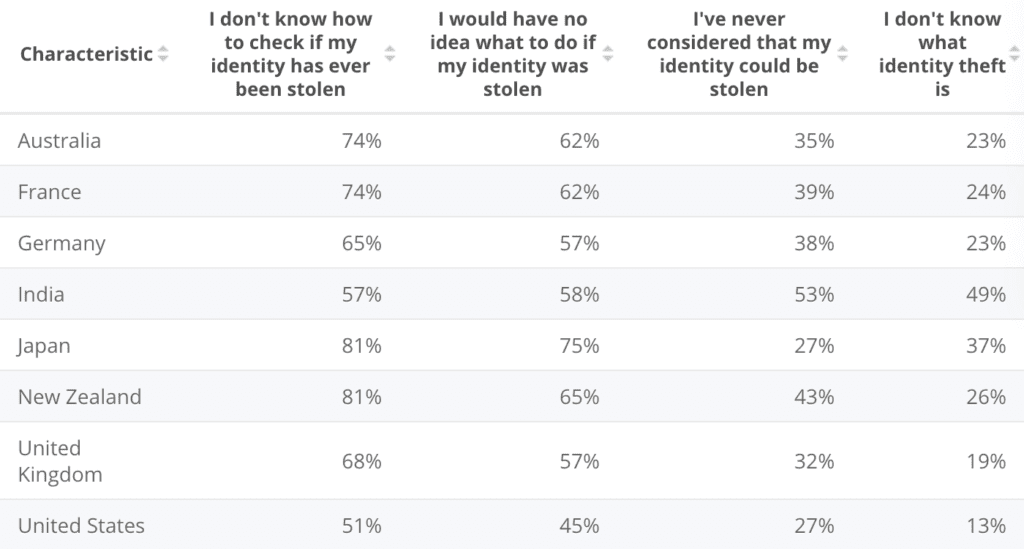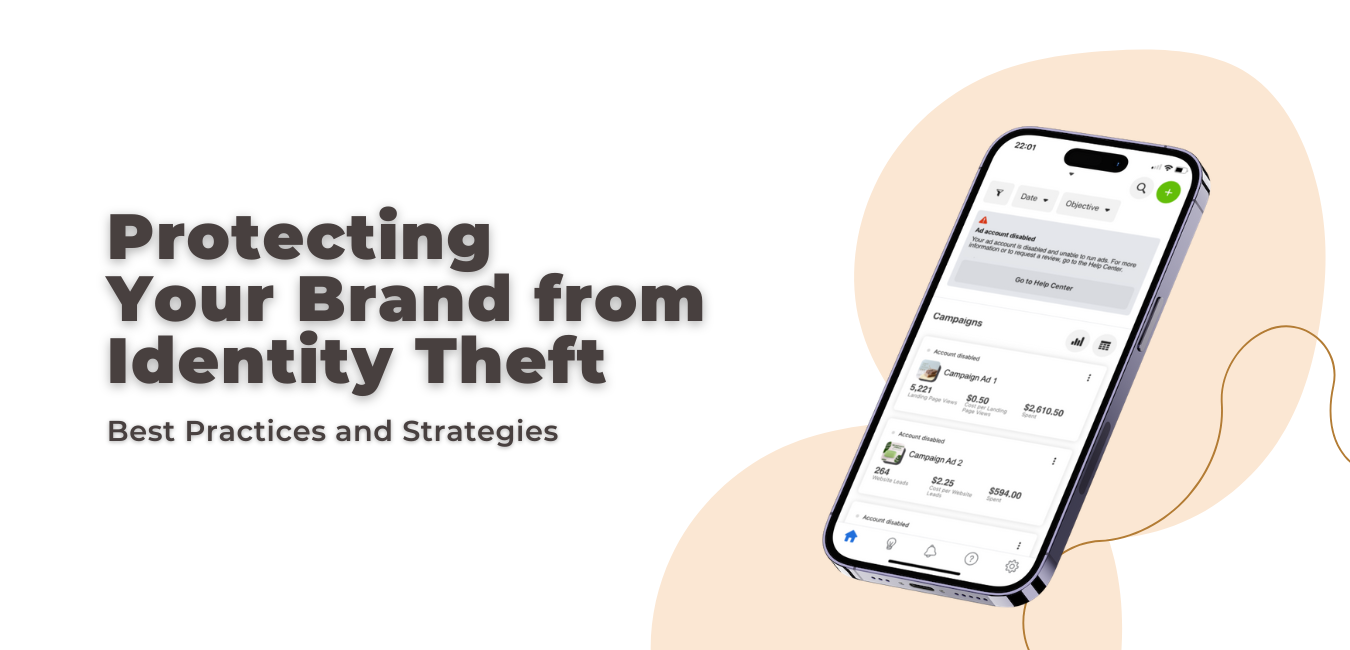Many newbies may have question what is Identity Theft on Social Media. However, identity theft poses a grave threat to brands’ reputations and financial stability. Imagine the horror of discovering that credit has been fraudulently obtained in your company’s name.
The ensuing chaos and damage control could paralyze your operations as you grapple with proving your innocence. Moreover, the specter of unjust debts looms ominously, haunting you with relentless pursuit.
The fallout can include tarnished credibility, loss of customer trust, and potential legal battles. But, the repercussions of identity theft extend far beyond mere monetary loss.
They encompass the very essence of your brand’s integrity and survival in the cutthroat business landscape. Safeguarding against such threats is crucial for businesses to protect their hard-earned reputation and financial well-being.
So, What Is Brand Identity Theft?
According to this report by Statista, approximately 13% of adults in the U.S.A are unaware of identity theft. And a significant 51% of adults do not even know how to recover from it.

Source: Statista
Now, brand identity theft is also sometimes referred to as business identity theft. For businesses, it is a damaging scheme where criminals pretend to be business owners, executives, or staff members. With this impersonation, criminals can engage in illicit business activities and secure credit from banks and suppliers in your name.
Essentially, it involves the unlawful exploitation of a company’s name and identity to reap financial benefits. In simpler terms, it’s like someone pretending to be you or your business. They would then trick others into giving them money or services in your name.
What Are The Risks and Consequences Of Brand Identity Theft In Social Media Advertising?
Brand identity theft in social media does pose significant risks. It does also come with consequences that can undermine your business’s online presence and reputation.
For example, it can lead to misrepresentation. Fraudsters may create fake accounts or pages that mimic your legitimate brand, deceiving customers, and potential clients.
As a result, your genuine business may suffer reputational damage, loss of trust, decreased customer loyalty, and potential financial losses. And speaking of financial losses; the FTC reported 5.7 million identity theft and fraud cases out of which 1.4 million were reported as identity theft. This underlines the profound financial implications and dents that identity theft can leave on your business.

Source: National Council on Identity Theft Protection
Another risk is in phishing and scam schemes. Criminals may exploit your brand’s reputation and popularity to deceive social media users into divulging personal information or falling victim to fraudulent schemes.
The consequence can be devastating, with customers becoming victims of identity theft, financial fraud, or other malicious activities. This can also tarnish your brand’s image due to associations with fraudulent behavior.
Brand identity theft in social media advertising can also lead to malicious interference by competitors. Rival businesses may seize the opportunity to impersonate your brand, spreading false information or negative propaganda to harm its reputation. This can result in a loss of market share, decreased customer confidence, and potential legal implications if the impersonating party engages in illegal activities or violates intellectual property rights.
How Do You Protect Brand Identity In Social Media Advertising?
Protecting your brand from identity theft in social media advertising isn’t easy. But, that doesn’t explicitly imply that it is something that is impractical.
To mitigate the risks of brand or social media identity theft, you need to implement robust security measures. Here are some of the best practices to protect brand identity in social media advertising:
- Implement Strong Authentication Measures: To begin, make use of two-factor authentication (2FA). 2FA is an additional security to safeguard social media accounts. So, it can be very effective in mitigating the risks of brand identity theft. Frequently update login details, use strong passwords, and store them in enterprise password managers.
- Manage Social Media Accounts Effectively: Establish centralized account management to ensure authorized personnel have control over brand accounts. Utilize social media management tools to streamline account monitoring and post-scheduling.
- Educate Employees on Security Awareness: It would be best to have a plan for managing your cybersecurity space and ensuring employee awareness. So, conduct regular training sessions to educate staff on how to identify phishing attempts and social engineering techniques. Encourage responsible social media usage and emphasize the importance of following security protocols.
- Establish A Proactive Brand Monitoring Strategy: Utilize social media listening tools to monitor brand mentions and comments. Regularly check for unauthorized accounts or pages using your brand identity and take prompt action to report and remove them.
- Secure Your Website: Protecting your website with SSL certificates is vital for brand identity protection. Wildcard or Multi domain SSL certificates provide comprehensive coverage for multiple domains and subdomains, ensuring secure connections and safeguarding sensitive information.
- Vigilantly Monitor Your Brand’s Activities Online: Regularly search social media platforms using broad and narrow keywords relevant to your brand and industry. Look out for any accounts or pages that may be impersonating your brand, including those using misspellings or variations of your brand name. Also, monitor hashtags associated with your account to identify any suspicious activity.
- Develop A Comprehensive Brand Protection Strategy: Your brand protection strategy should extend beyond social media impersonation. This strategy should also encompass other areas, such as fake domain names and unauthorized app stores associated with your brand. Register relevant domain names to minimize the risk of others misusing your brand for malicious purposes. Importantly, monitor app stores to identify and report any counterfeit or unauthorized apps that may confuse or defraud your customers.
- Leverage The Power Of Logo Recognition Tools: Use image and logo recognition tools to help identify false accounts using your company’s visuals. These tools employ advanced algorithms to scan social media platforms for unauthorized usage of your brand’s images or logos. Take prompt action against visual brand identity theft to prevent misleading content and protect your brand’s integrity.
How Do You Recover From Brand Identity Theft In Social Media Advertising?
Despite preventive measures, brand identity theft can still occur. However, is it the conclusion? No!
In such cases, the best course of action is to act immediately. If you detect identity theft attempts, contact the respective social media platforms to report fraudulent activity. Having an effective incident response plan in place can make all the difference in handling the situation calmly and efficiently.
Also, notify your customers and stakeholders about the incident. As you do this, reassure them of your commitment to their security.
The key focus here should be rebuilding trust and credibility. Adopt a transparent and open communication approach to address the identity theft incident. Also, demonstrate your commitment to implementing robust security measures to prevent future occurrences.
A Final Word On Brand Identity Theft In Social Media Advertising
The incidences of brand identity theft are ever-rising. So, protecting your brand from identity theft in social media advertising should top your priorities.
Don’t just understand the risks. Be sure to implement best practices, and adopt proactive strategies to safeguard your brand identity, reputation, and the trust of your audience.
This article is a guest post. The guest author is solely responsible for ensuring the accuracy and authenticity of the information provided in the article. Any product or service recommendations or mentions made in the guest post are not endorsed by Strike Social.
For guest posting opportunities, we invite you to reach out to us. We are excited to collaborate with talented writers and feature high-quality content on our blogs.








